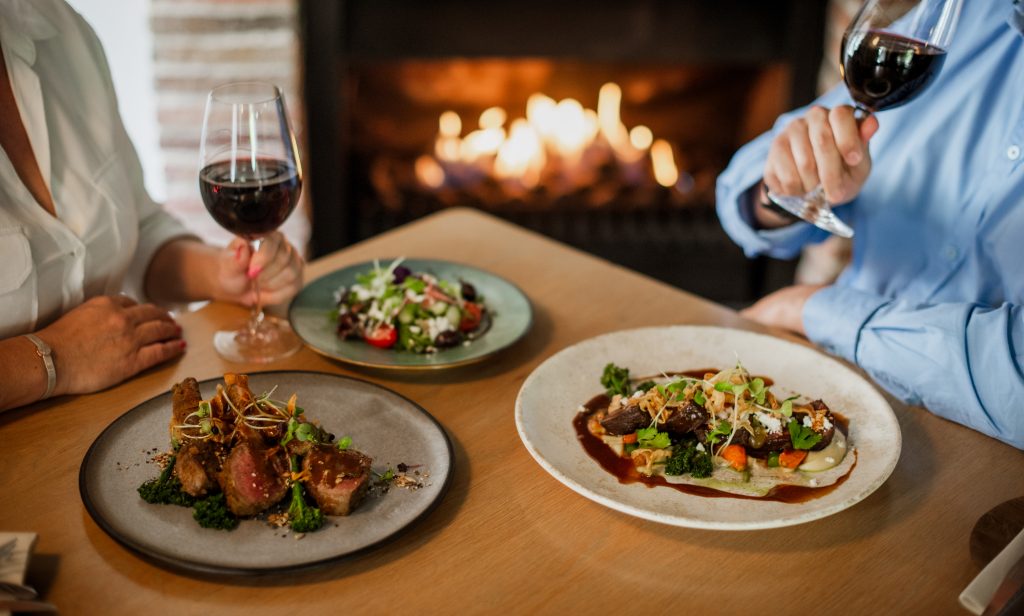South Africa’s hospitality sector is thriving amid a global shift towards high-end, experience-driven travel. This trend has significantly boosted the revenue per available room (RevPAR), as more travelers prioritize quality and unique experiences over quantity.
According to hospitality data specialist STR, 77% of international markets have reported higher RevPAR in 2024 compared to the previous year, with both occupancy and average daily rate (ADR) seeing an increase. South Africa is no exception, with Room Raccoon’s SA Summer Hospitality Report for April 2024 showing an 11% improvement in RevPAR from summer 2023 to 2024, alongside a 10% rise in ADR.
Cape Town, often regarded as the crown jewel of South African tourism, has experienced a significant surge in tourism numbers. Enver Duminy, CEO of Cape Town Tourism, noted that the overall occupancy rate in 2023 was 68%, reflecting a 9% increase from 2022. RevPAR in the city improved by an impressive 22.7% during the same period. Notably, international arrivals at Cape Town International Airport soared by 50%, with over 1.3 million travelers from outside Africa visiting the city last year.
Room Raccoon’s report highlights that airport shuttles, spa treatments, picnic and dining boxes, bottles of MCC/wine, and game drives were the top ancillary revenue generators for hotels. Despite many countries grappling with higher inflation, travelers seem undeterred in their spending on captivating experiences.
A significant shift has also been observed in the demographics of international travelers seeking luxury stays in South Africa. Previously, the majority of these tourists were aged 55 and above. However, as tourism becomes more experience-driven, a younger crowd, particularly those in their 30s, is entering the high-end market. Catherine Schulze, Managing Director of Cape Town’s five-star Steenberg Hotel & Spa, Bistro 1682, and Tryn restaurants, attributes this change to the growing emphasis on quality over quantity in travel.
“Where people might have previously spread their money across multiple holidays, they now concentrate their budget on one trip, allowing them to hire the best cars or stay at the finest hotels,” Schulze explains. “There is also a trend towards multigenerational travel, with people prioritizing quality time with loved ones.”
Schulze also notes the role of remote work in driving up tourist numbers. The ability to work in a beautiful setting in another country while staying connected with home has become an irresistible draw for many. Steenberg’s spa services are in high demand, supporting Room Raccoon’s findings on ancillary revenue generation. This aligns with the broader trend in luxury travel, where travelers are less focused on ticking items off a bucket list and more inclined to indulge in relaxing experiences.
Today’s travelers are eager to pamper themselves with a spa treatment, enjoy a glass of wine on a terrace, or celebrate special occasions with loved ones. This shift has led to an increase in demand for more luxurious and spacious rooms, a trend that Steenberg is capitalizing on by upgrading its restaurants, outdoor areas, and heating its pool.
Another noteworthy development at Steenberg is the growth in visitors from outside its traditional UK and German markets. The Constantia Valley wine region luxury estate, located just 25 minutes from Cape Town’s inner city, is seeing increasing numbers of visitors from Scandinavia, Mexico, Italy, and the United States. Neilen Tolmay, Head of Sales at Steenberg, attributes this to travelers from these countries seeking something different.
“South Africa is a multifaceted destination, with both cultural and adventure travel becoming increasingly important. This is where South Africa truly excels,” Tolmay says. He emphasizes that personalization is key to differentiating a hotel. At Steenberg, 20% of guests are repeat customers, thanks to the hotel’s ability to pre-empt their needs.
Over the past three years, Steenberg’s shoulder seasons have effectively become extensions of its peak season, which traditionally runs from December 20 to the end of February. Tolmay notes that travelers, particularly those in the mature segment of the luxury market who are not bound by school or academic schedules, have recognized the benefits of visiting during quieter months like April and May. This flexibility allows them to experience a destination more authentically, with fewer tourists around.
Schulze suggests that March is the ideal time to travel to South Africa, as it avoids the stress of the booking frenzy that accompanies the peak season. While securing bookings in South Africa is generally straightforward, Schulze and Tolmay recommend working with experienced operators for those who wish to combine a safari experience with a trip to Cape Town.
“Our best advice is to be clear about the experience you want and provide as much information as possible to the host destination,” Tolmay advises. “If you’ve never been to the country before, it’s crucial to have an excellent agent who can curate that first trip for you.”
As South Africa’s hospitality sector continues to thrive, it’s clear that hotels’ ancillary products and services are not just an add-on but a crucial part of the experience that captures the imagination of travelers, even in the face of global inflation. The trend towards high-end, experience-driven travel shows no signs of slowing down, with luxury travelers willing to invest in quality, personalization, and unforgettable experiences.
